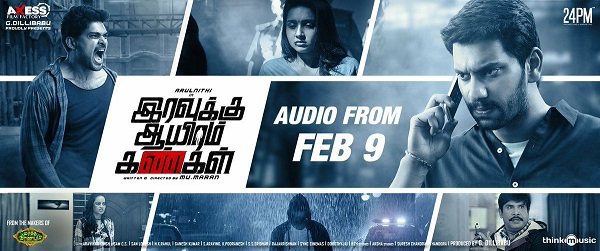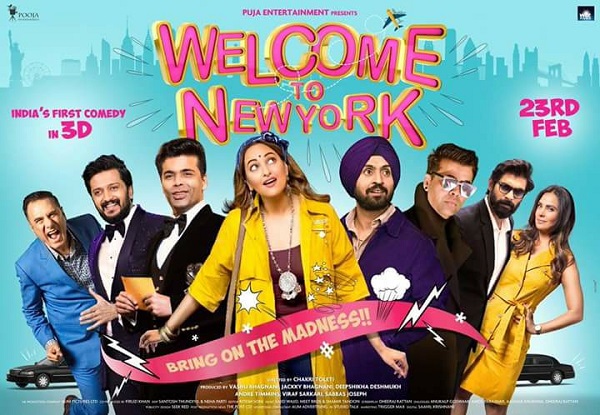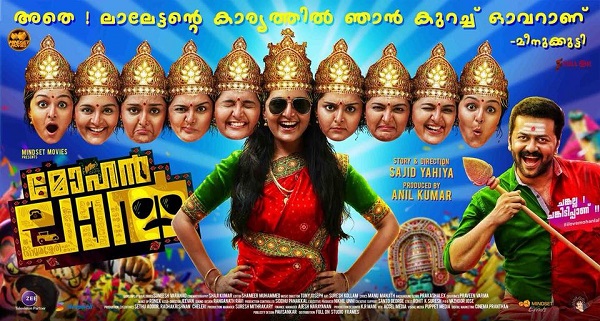![]()
Songs and musician credits at the end.
There are noticeable overlaps between Kabali and Kaala – in terms of key crew members, theme etc. It isn’t surprising, therefore, to see a lot of that overlap extend to the movies’ music credits, and indeed some of the songs themselves. One of the tracks where that connect is most apparent is Katravai Patravai, Kaala’s equivalent of Neruppu Da – the rap, the electric guitar (Keba Jeremiah here) that rules the backdrop, the occasional appearances of whistles and Rajinikanth’s one-liners – all hark back to the Kabali piece. Not that it is ineffective due to that evocation though, the song still sounds exhilarating. With Arunraja Kamaraj and Roshan Jamrock (both names that featured in Kabali), it is Yogi B who leads the rapping in Katravai. Rap forms the backbone of four more tracks in the album, and given the movie’s Dharavi backdrop, this means a prominent showcasing of Dharavi-based multilingual hip-hop collective Dopeadelicz (headlined by rappers Tony Sebastian and Rajesh Radhakrishnan, who had featured on Ram Sampath’s Coke Studio Season 4 episode). First of those songs is Semma Weightu that composer Santhosh Narayanan riffs off Veera Thuranthara, but with more prominent use of horns (Louis Dowdeswell) amidst some other cool touches. Some clever rhyming here, and love the minute-long outro highlighted by the folk percussion and beatboxing. Composer manages to seamlessly stitch together Tamil lyrics with Marathi and Hindi verses in Dopeadelicz and Logan’s vehement call to arms titled Poraaduvom (the mix of languages in this movie’s rapping takes my mind back to this brilliant experiment by percussionist Viveick Rajagopalan from earlier this year titled Ta Dhom that incidentally features some of the same rappers, except the songs have a prominent Carnatic angle to it. You might have seen the title song video late last year; the whole album is up on Apple Music if you are interested). Theruvilakku too seems to echo similarly rebellious sentiments but this one is entirely in Tamil (except for the “welcome to ma hood” bit that opens the main track). Musically I find this more imaginative than the previous one, and therefore more enjoyable.
Dopeadelicz’s final song is another Tamil-Hindi mix titled Nikkal NIkkal that starts off with minimal percussion and builds up intensity as it progresses, ending in a full blown kuthu track. Is it just me who got briefly reminded of Pa Ranjith-Santhosh Narayanan’s Enga Ooru Madrasu when the song started off with Idhu Enga Kottai? Vijay Prakash and Ananthu lead Urimayai Meetpom, a composition whose melodic flavour combined with the dholak–tabla dominated backdrop feels like a throwback to the Deva era of Rajni film music. Okayish tune though, that gains slightly from the singers’ earnest delivery. The dholak-tabla combination is prominently used in Thanga Sela as well, one of two songs that digress from the soundtrack’s political theme. The light-hearted romantic piece has fine arrangement from Santhosh Narayanan (particularly loved Satish Raghunathan’s harmonium), but it is Shankar Mahadevan who rules the song, rendering with his characteristic swag, with fine support from Pradeep Kumar and Ananthu. Arunraja Kamaraj’s lyrics interestingly make a reference to “Thilla Taangu Taangu Summa Thiruppi Poattu Vaangu” verse from Madurai Veeran (Dhool). Pradeep leads the vocal department along with Dhee for Kannamma, the album’s quietest track. Clearly drawing from Vaanam Paarthen, the track progresses in similarly mesmerising fashion riding on a haunting framework of guitars (Keba Jeremiah, Joseph Vijay) that is aided by Vishnu Vijay’s flute solos. Pradeep and Dhee’s quality rendition is further accentuated by Ananthu’s harmonies. Harmonies that get even more brilliantly employed in the Acappella version of the song that has Ananthu going solo, delivering all the vocal layers and whistles.
Kaala. Highly thematic and vibrant soundtrack from Santhosh Narayanan and the team of lyricists, that occasionally draws from the Kabali soundscape.
Music Aloud Rating: 3.5/5
Top Recos: Kannamma, Katravai Patravai, Thanga Sela, Theruvilakku
Musician Credits
Track #1 – Semma Weightu
Lyrics: Dopeadelicz, Arunraja Kamaraj, Logan
RAP: Dopeadelicz – Dope Daddy, Stony Psyko, MC Mawali & featuring Arunraja Kamaraj
Singers : Hariharasudhan, Santhosh Narayanan
Beatbox : Beat Slayer (Dopeadelicz)
Chorus: Chinna, Tony Britto, RK Sundar
Electronic Drums: David Joseph
Bass: Naveen
Electric Guitars: Jhanu Chanthar
Indian Percussions: RK Sundar
Trumpets: Louis Dowdeswell
Additional Synths: Karthick Devaraj
Track #2 – Thanga Sela
Lyrics : Arunraja Kamaraj
Singers : Shankar Mahadevan, Pradeep Kumar, Ananthu
Chorus : Santhosh Narayanan
Acoustic Guitars : Keba Jeremiah
Bass : Naveen
Harmonium : Satish Raghunathan
Indian Percussions : Ganapathy, Venkat
Shakers : Pradeep Kumar
Track #3 – Katravai Patravai
Lyrics : Arunraja Kamaraj, Kabilan, Roshan Jamrock
RAP : Yogi B, Arunraja Kamaraj, Roshan Jamrock
Additional Dialogues : Shri.Rajnikanth
Electric Guitars : Keba Jeremiah
Bass : Naveen
Drums : David Joseph
Tapes : “4 idiots” group
Track #4 – Kannamma
Lyrics : Uma Devi
Singers : Pradeep Kumar, Dhee
Backing Vocals : Ananthu
Whistle : Ananthu
Acoustic Guitars : Keba Jeremiah
Nylon Guitar Solo : Joseph Vijay
Additional Acoustic Guitars : Joseph Vijay
Bass : Mani
Flute : Vishnu Vijay
Cajon, Additional Percussions : David Joseph
Additional Percussions : David Joseph , RK Sundar
Track #5 – Kannamma – Acapella
Lyrics : Uma Devi
Singer : Ananthu
All Backing Vocals and Whistle : Ananthu
Track #6 – Urimayai Meetpom
Lyrics: Arivu
Singers : Vijayprakash, Ananthu
Chorus : Rohith Fernandes, Yogi Sekar, Chinna, Tony Britto, RK Sundar
Acoustic Guitars : Keba , Telfie
Electric Guitars : Keba
Bass : Naveen
Additional Pianos : Karthick Devaraj
Indian Percussions : Ganapathy, Venkat
Track #7 – Poraaduvom
Lyrics : Dopeadelicz, Logan
Singers: Dopeadelicz
Additional Indian Percussions : RK Sundar
Additional Synths : Karthick Devaraj
Chorus : Rohith Fernandes, Tony Britto, Chinna, Yogi Sekar
Track #8 – Theruvilakku
Lyrics: Dopeadelicz, Logan
Singers : Dopeadelicz, Muthamil
Additional Indian Percussions : RK Sundar
Additional Ethnic Tones : RK Sundar
Track #9 – Nikkal Nikkal
Lyrics : Dopeadelicz, Logan
Singers: Dopeadelicz, Vivek, Arunraja Kamaraj
Indian Percussions : “4 Idiots” group
Additional Indian Percussions : RK Sundar
Additional Vocals : RK Sundar, Rohith Fernandes, Tony Britto, Chinna, Yogi


















 ) is immensely derivative, both in sound and words – but the overall catchiness of the template will mean that the song is still likely to rule the dance floors. In fact, multiple songs from the eight track album of Veere Di Wedding fit both these bills, given the Punjabi wedding theme that dominates the sound palette. One such track is Laaj Sharam, a song created (music and lyrics) by White Noise, an A&R outfit from composer duo Sachin Jigar akin to Pritam’s JAM8. Sachin Jigar have apparently previously composed a song in the past (Tu Mere Type Ka Nahi Hai for the 2014 movie Dishkyaaon – thanks to Rujul for this bit of trivia) under the name though. Sung by Divya Kumar and Jasleen Royal with rapping by Enbee, the song is standard issue but entertainingly arranged techno Punjabi dance material (it is perhaps the presence of Kumar behind the mic that takes my mind back to Aafaton Ke Parindey from Ishaqzaade in the Tu Mere’s frenetic portions).
) is immensely derivative, both in sound and words – but the overall catchiness of the template will mean that the song is still likely to rule the dance floors. In fact, multiple songs from the eight track album of Veere Di Wedding fit both these bills, given the Punjabi wedding theme that dominates the sound palette. One such track is Laaj Sharam, a song created (music and lyrics) by White Noise, an A&R outfit from composer duo Sachin Jigar akin to Pritam’s JAM8. Sachin Jigar have apparently previously composed a song in the past (Tu Mere Type Ka Nahi Hai for the 2014 movie Dishkyaaon – thanks to Rujul for this bit of trivia) under the name though. Sung by Divya Kumar and Jasleen Royal with rapping by Enbee, the song is standard issue but entertainingly arranged techno Punjabi dance material (it is perhaps the presence of Kumar behind the mic that takes my mind back to Aafaton Ke Parindey from Ishaqzaade in the Tu Mere’s frenetic portions).
